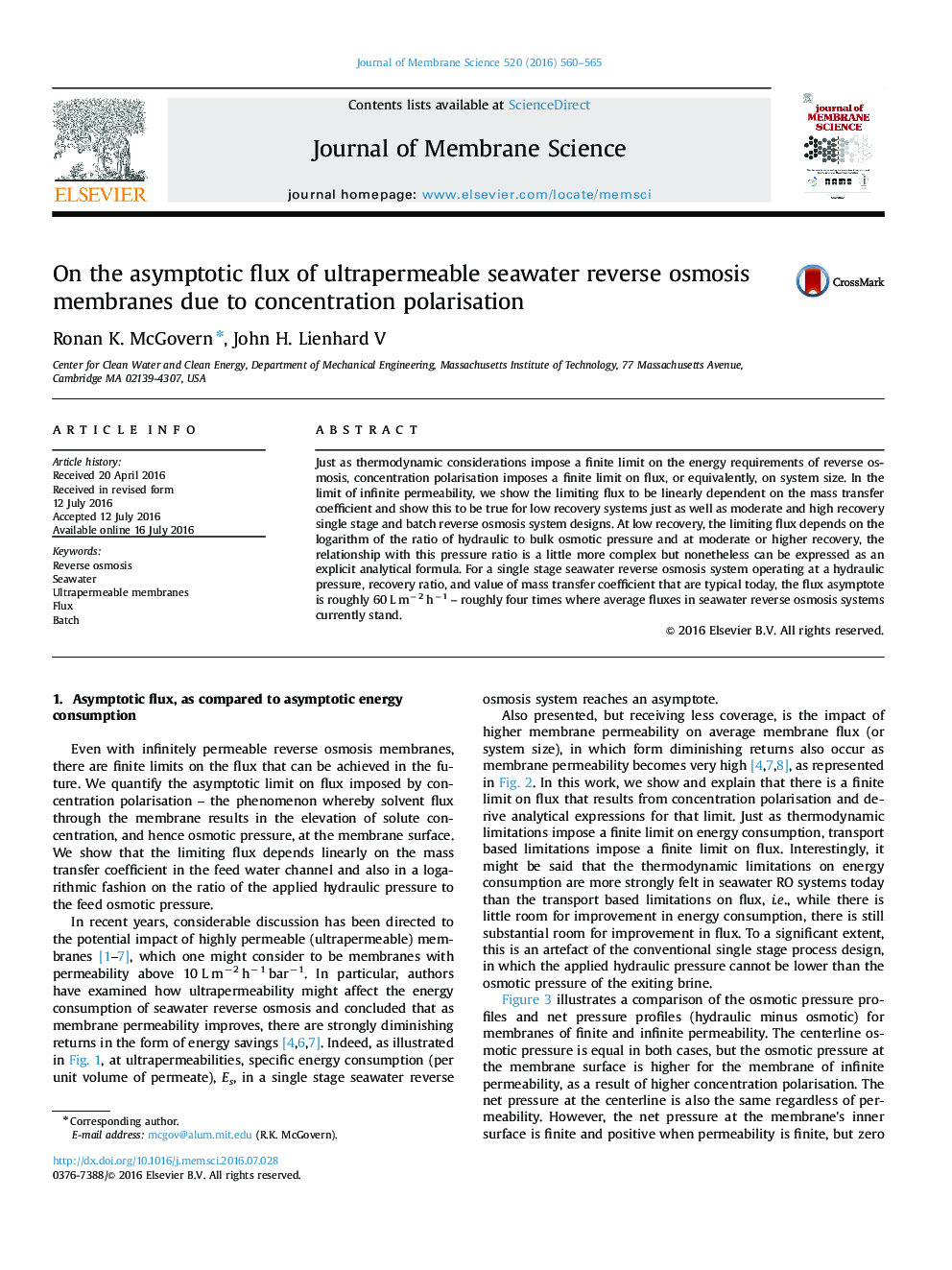| Article ID | Journal | Published Year | Pages | File Type |
|---|---|---|---|---|
| 632192 | Journal of Membrane Science | 2016 | 6 Pages |
Abstract
Just as thermodynamic considerations impose a finite limit on the energy requirements of reverse osmosis, concentration polarisation imposes a finite limit on flux, or equivalently, on system size. In the limit of infinite permeability, we show the limiting flux to be linearly dependent on the mass transfer coefficient and show this to be true for low recovery systems just as well as moderate and high recovery single stage and batch reverse osmosis system designs. At low recovery, the limiting flux depends on the logarithm of the ratio of hydraulic to bulk osmotic pressure and at moderate or higher recovery, the relationship with this pressure ratio is a little more complex but nonetheless can be expressed as an explicit analytical formula. For a single stage seawater reverse osmosis system operating at a hydraulic pressure, recovery ratio, and value of mass transfer coefficient that are typical today, the flux asymptote is roughly 60Â LÂ mâ2Â hâ1 - roughly four times where average fluxes in seawater reverse osmosis systems currently stand.
Keywords
Related Topics
Physical Sciences and Engineering
Chemical Engineering
Filtration and Separation
Authors
Ronan K. McGovern, John H. Lienhard V,
